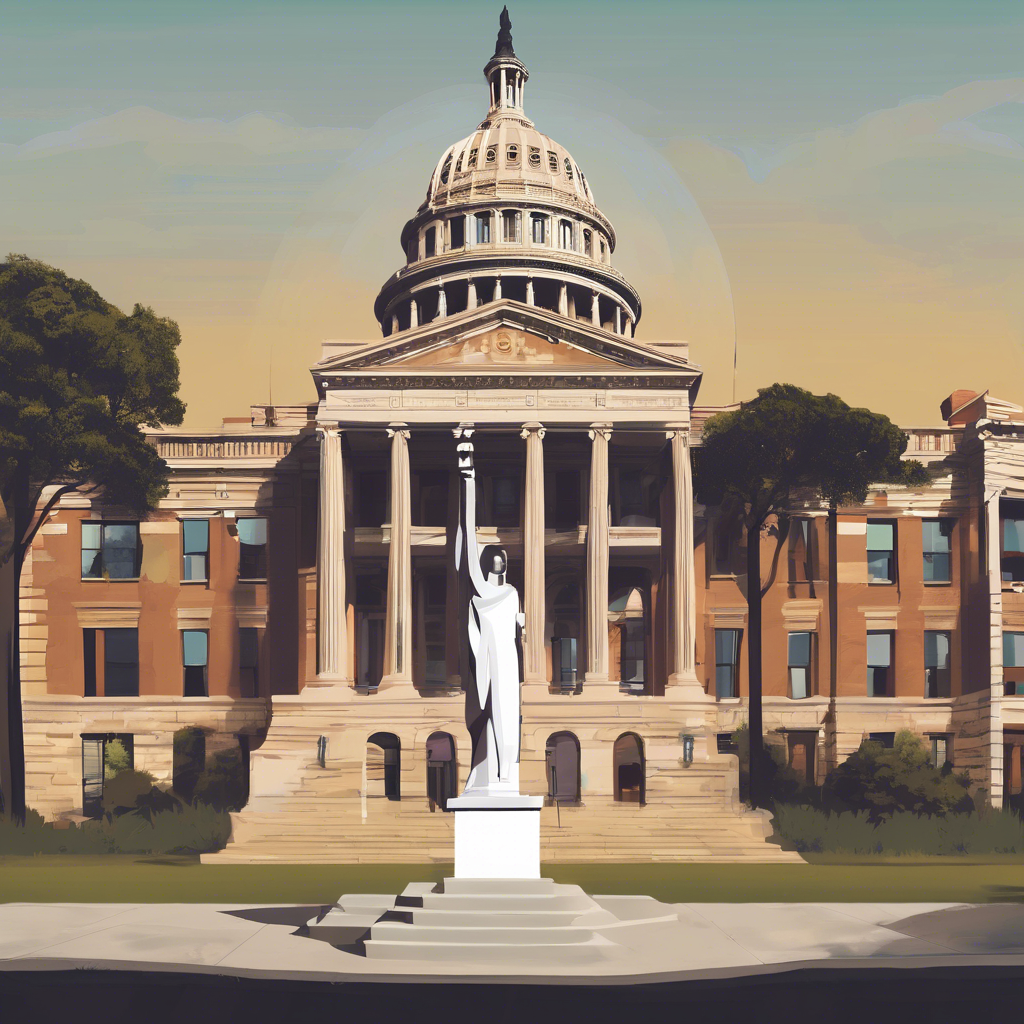Wisps of Justice: Charges Drop Against GOP Donor in Election Fraud Scheme
In a dramatic turn of events this week, most charges against a prominent GOP donor and former Houston Police Department captain were dismissed in a case centered on alleged election fraud. The outcome has sparked rampant discussions about the ramifications for political integrity and law enforcement accountability in Texas. 🗳️
The case underscored growing tensions surrounding election-related controversies, illustrating a troubling intersection of funding, law enforcement, and political ambition. Former Houston PD Captain and GOP supporter, deemed a *key player* in the scheme, initially faced multiple felony charges after a scandal emerged claiming he orchestrated a plot to manipulate voter registrations and cast fraudulent ballots. A series of declarations from prosecutors indicated that crucial evidence raised doubts about the legitimacy of the accusations, leading to the dismissal of most charges.
The Charged Atmosphere of Election Fraud Claims
Over the past few years, debates over election integrity have intensified, often stirring political unrest. Nationally, GOP officials have championed voter ID laws and audit threats, claiming they seek to safeguard democracy. However, as this case exemplifies, allegations of election fraud can sometimes morph into fortuitous political weaponry.
“Making claims of widespread fraud without substantiating evidence diminishes trust in our electoral processes,” remarked political analyst Carlos Martinez. “Unfortunately, this case plays into that narrative, showcasing how unfounded accusations can warp public perception of foundational democratic practices.”
Behind the Charges: Unpacking the Allegations
The erstwhile allegations against the former captain, whose identity remains redacted pending ongoing investigations, accused him of managing a scheme purportedly designed to secure electoral advantages. Investigators alleged that his organization influenced voters through fraudulent registrations and utilized misrepresented data to pressure election officials into questionable actions. However, as the investigation progressed, the reliability of witness statements and key documents began to unravel.
Data presented in court revealed that many claims were based on unsubstantiated hearsay and conjectural reports, prompting legal experts to question the motivations behind the aggressive prosecution. Critics now voice concerns over whether the case was grounded in political maneuvering rather than the pursuit of genuine justice.
Chain Reactions: Political Fallout and Public Trust
The implications of dropping most charges ripple through the political landscape, stoking fears about the erosion of public trust in the system. Critics assert that this decision may embolden others to undermine electoral stability without accountability. Disillusionment brews, particularly among progressive factions who argue that justice is selectively applied based on wealth and political clout. 💰
- Political Accountability: Observers are calling for stricter regulations surrounding campaign finance and lobbying, suggesting the need for transparency in political funding to restore confidence in civic leadership. 📊
- Legal Considerations: Legal experts express concern that failing to pursue justice against substantial claims of fraud—even those that may have not been fully substantiated—could set a dangerous precedent for future election cycles.
- Sociopolitical Reactions: Many citizens are seeking reassurance that their electoral rights will be protected against recurrence of similar schemes. Activism on social media has surged, seeking reforms and accountability measures from local government officials.
Future Implications: Navigating a Shifting Political Climate
The fallout from this case raises unsettling questions about the American political system’s resilience amid a charged environment. As discussions about voter suppression, election integrity, and the role of money in politics heat up, lawmakers are left grappling with a delicate balancing act between ensuring fair elections and preventing manipulation.
With charges dropped and underlying issues exposed, political analysts forecast changes in campaign strategy as donors reassess involvement in risk-laden ventures. 📉 Interest groups are already mobilizing, pushing for comprehensive electoral reform to preemptively thwart fraud, calling for solidarity in cultivating trust within the voting populace.
“What we learn from this case shows how protectors of the law can also be its violators,” warned civil rights advocate Laura Jensen. “The community deserves assurance that true justice is pursued, ensuring our democracy remains untarnished by malintent.”
Conclusion: The Call for Accountability
As the dust settles on this saga, it is clear that our electoral system’s integrity is at stake. The dismissal of charges against a high-profile political figure reveals cracks in an already fragile system. The outcome will be crucial in dictating future legal challenges and political regulations as the United States moves closer to the next election cycle. The fabric of democracy is woven from the threads of justice and accountability, and the nation must double down on both to build a more equitable electoral future. ⚖️





